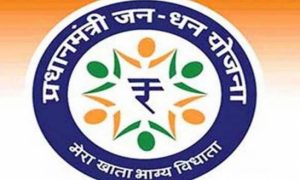Is there a connect between low blood pressure and lack of Vitamin D? Here is what we know about the connection. Read on to know how to boost Vitamin D in winters.
Vitamin D is an essential nutrient and plays an important role in overall health regarding maintaining bone strength, and it also contributes to the many other kinds of functions of the body, which are musculoskeletal, nervous system functions. So, it is not connected directly with blood pressure but its deficiency will have indirect impacts on blood pressure levels.
Vitamin D influences the production of renin, a hormone involved in blood pressure regulation. Deficiency in Vitamin D can lead to impaired renin release, which in turn can cause blood pressure to drop. Therefore, maintaining adequate levels of Vitamin D is essential for cardiovascular health and optimal blood pressure regulation.
Read More: 5 Reasons Why Running Is Great For Your Health
How Vitamin D Affects Blood Pressure?
Vitamin D helps regulate the renin-angiotensin system (RAS), which is responsible for controlling blood pressure. According to Dr. Manisha Dhobe HOD,Coronary Care Unit, Ruby Hall Clinic, Pune, when vitamin D levels are insufficient, it can lead to an imbalance in the RAS, potentially causing low blood pressure or hypotension. The vitamin also plays a role in calcium absorption, and calcium is essential for proper muscle function, including the muscles that regulate blood vessel tone. Thus, a deficiency in vitamin D can lead to poor vascular function, which may contribute to low blood pressure.
Additionally, vitamin D’s ability to reduce inflammation and its impact on the production of nitric oxide, a compound that helps dilate blood vessels, further highlights its importance in maintaining normal blood pressure levels. Consequently, ensuring sufficient vitamin D levels is key to supporting a balanced blood pressure range.
Read More: Suffering From Frequent Acidity? Here Are Some Home Remedies To Try On
Vitamin D deficiency explained
Vitamin D deficiency impacts calcium metabolism and causes damage to muscle and nerve functions, which indirectly influences vascular health, explained Dr. Manish Mittal, Consultant Physician, Bhailal Amin General Hospital, Vadodara, explained while speaking with India.com. Vitamin D is an essential nutrient in the conduction of nerve impulses, and a deficiency can cause imbalances in the nervous system, indirectly influencing blood pressure regulation. Although the main functions of vitamin D are related to bone health and calcium metabolism, indirect effects on cardiovascular and neurological health indicate that maintaining optimal levels is important for overall well-being.
Read More: Prolonged Screen Time: A Growing Concern for Bone and Joint Health
Tips to Boost Vitamin D
During the winter season, less sunlight exposure will have a hard time in your body to produce the adequate level of vitamin D. Here are some effective strategies to improve vitamin D levels:
Sunlight Exposure:The most natural and efficient source of vitamin D is sunlight. Spending time outdoors during the day, even in winter, can help the body synthesize this essential nutrient.
Vitamin D-Rich Foods: For Non-Vegetarians: Fatty fish like salmon, mackerel, and tuna are very rich in vitamin D. Many food products such as milk, orange juice, and cereals are fortified with Vitamin D. These can be incorporated into the diet to help improve intake.
Vitamin D Supplements: According to Dr. Aravind Badiger Technical Director BDR Pharmaceuticals, in the winter months, sunlight exposure is limited, and dietary intake alone may not be sufficient to meet daily Vitamin D needs. Supplementation with Vitamin D3 (cholecalciferol) is a highly effective way to raise Vitamin D levels and improve blood pressure regulation. It is advisable to consult a healthcare professional for appropriate dosing.
While vitamin D is most commonly associated with bone health, its role in maintaining healthy blood pressure levels is equally important. The winter months can make it more challenging to get enough vitamin D due to decreased sun exposure, but with mindful strategies such as sun exposure, consuming vitamin D-rich foods, and considering supplementation, you can help maintain optimal vitamin D levels and support your overall health, including healthy blood pressure. However, always get checked and consult a doctor before making significant changes.





































